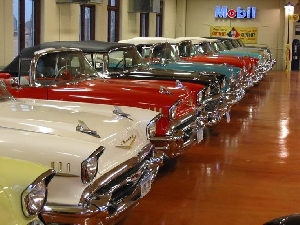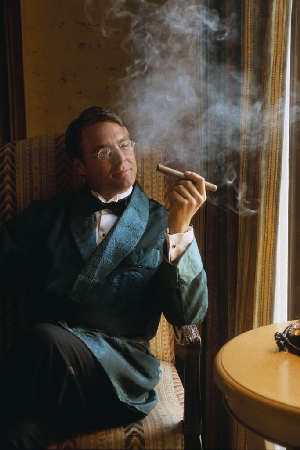 Want to know what to expect of the work force in the years ahead? Look no farther than our schools or homes. Let me preface my remarks by saying that in addition to all of my other responsibilities, I was very active in my local Little League for a number of years where I served as coach, umpire, and on the local board of directors. Further, I have been very active locally in offering Masonic scholarships to High School students. In addition, my wife has been active in the local school system for the last ten years at the elementary, middle, and high school levels (this also included PTA and SAC). Although we probably won't win an award as the world's best parents, we made a point of becoming an important and influential part of our children's lives. We didn't take any special courses in parenting, we just got involved. But we are the exceptions as opposed to the rule.
Want to know what to expect of the work force in the years ahead? Look no farther than our schools or homes. Let me preface my remarks by saying that in addition to all of my other responsibilities, I was very active in my local Little League for a number of years where I served as coach, umpire, and on the local board of directors. Further, I have been very active locally in offering Masonic scholarships to High School students. In addition, my wife has been active in the local school system for the last ten years at the elementary, middle, and high school levels (this also included PTA and SAC). Although we probably won't win an award as the world's best parents, we made a point of becoming an important and influential part of our children's lives. We didn't take any special courses in parenting, we just got involved. But we are the exceptions as opposed to the rule.
Prior to World War II, the country was immersed in an economic depression which put a strain on families and disrupted our society. Everyone in a family was expected to pitch in and do their part in order to survive, this included going to school and their place of worship. Some families suffered severe hardships during this period causing children to drop out of school and go to work. They didn't drop out as some form of rebellion or protest, but to simply earn money to help support the family. Consequently, many earned nothing higher than a Junior High diploma which was prized by many families. The point is, there was a sense of family back then and the people's hunger built character. They understood the value of a dollar, worked hard and squandered nothing. It was this generation that got us through the war and propelled the country towards economic success in the latter part of the 20th century.
In the 1950's and 1960's, as the country was experiencing an economic boom, a parent normally stayed at home to manage the family, usually the wife. If a child had a problem, a parent was always home to tend to their needs. Children no longer had to drop out of school to support the family and our High Schools and Colleges swelled with students. The "baby boomers" were considered well adjusted and readily adapted to the work force. This generation saw us through the space race and the technology revolution which changed the face of corporate America.
But in the last three decades, we began to lose faith in our economy and our standard of living. As a result, both parents began to work inordinate hours and a generation gap began to emerge. Exhausted by their work, the parents would return home where the last thing they wanted to hear was their child's problems. Consequently, children became social outcasts in their own homes and often had to fend for themselves; they simply couldn't relate with their parents. Sure, the parents would sign their kids up for Summer Camp, Little League and Soccer, but this was viewed more as baby-sitting services as opposed to taking a true interest in the child's development. They would also give their kids television sets and video games to occupy their time.
Today, school teachers have become surrogate parents by default, something they weren't trained for, nor inclined to accept. Talk to a teacher and you will hear stories of lack of respect for authority, poor manners, and dysfunctional social intercourse. Children today no longer learn their values from their parents but rather from Hollywood. As young adults entering the work force, their work ethic, values, and behavior are noticeably different than the prior generation. There is no longer a sense of quality, service, or craftsmanship; just put in your time and collect a paycheck. This is all having an adverse effect on how we conduct business and the corporate culture.
Now, let me give you a the scary figure: probably 20%, or less, of today's graduating High School seniors are socially well adjusted.
Knowing this, what should you do as a manager?
In the past, if you were a new employee, it was assumed you knew how to manage your personal life and you were expected to adapt to the corporate culture. This is no longer true and presents a problem for managers. Younger employees today have problems managing money, dressing appropriately, and interpersonal relations and communications, not to mention alcohol, drugs, and sex. They are raw and rough. But are they salvageable? They better be, for your company's sake, as they represent tomorrow's work force.
Perhaps we can take a lesson from the military services here. The military is well aware they are not getting the "cream of the crop" when they take on new recruits. Many are social misfits coming from broken homes. As such, the military's initial role is to break the individual of bad habits and impose a new system of discipline and work ethic. Individualism is replaced by teamwork and, in the process, a sense of belonging and family is imposed. This is either readily accepted by the new recruit or they are drummed out of the service. Discipline, organization, teamwork, and a strong work ethic can have a dramatic affect on a drifting soul. By doing so, it can bring order to lives and a sense of purpose, something that perhaps was neglected at home.
Today's Drill Instructors and junior officers also find themselves as surrogate parents and are now instructed in counseling young soldiers. The boot camps of today are a lot different than what the country experienced during World War II, Korea, and Viet Nam. Yet, we are producing a fine class of soldiers which makes our country proud. In other words, they must be doing something right.
If we have learned anything from the military in this regard, it is that the times have changed and our employees today have different needs requiring a new type of manager who can adequately tend to them. And like today's Drill Instructors and school teachers, managers are finding themselves in the role of surrogate parents, like it or not. Managers bristle at this notion. After all, they want to get on with their business and do not want to be regarded as a baby-sitter. But the fact remains, home parenting skills are at an all-time low and to overcome this problem, someone has to assume the duty to compensate for this inadequacy. Again, the military readily understands this and has adapted accordingly. But can business?
Understand this, corporate America's "recruits" come predominantly from the colleges and universities whose purpose is not to teach social skills, but rather, to teach people how to learn. A college diploma most definitely does not mean the graduate is socially well-adjusted, but that he/she has learned to study and accept new ideas. If anything, the student's extracurricular activities tell more about a person's personality than the degree itself. For example, participation in team sports, club activities, or Greek life speaks volumes about a person's personality and social skills.
In the past, new corporate recruits underwent special training programs to learn how the company conducts business. Sales people in particular had to undergo rigorous training to learn how to present products and care for the customers. Workmen underwent training to learn how to build quality products. However, such programs have been slashed in recent times as a means for cutting costs (and will be the subject of a future paper).
There was also a period where mentors were assigned to new employees to chaperone them on their journey through the corporate world. Mentors were basically a "Big Brother/Sister" program where senior employees would offer sage advice to neophytes on adapting to the corporate world. But like the training programs, mentoring is also being phased out.
Although mentoring and training programs were intended to develop the employee's skills and effectiveness from a corporate perspective, neither dwelled on the personal problems of the employee.
Now that new employees are left to fend for themselves, a generation gap is emerging in business. Managers from just about every job segment are frustrated with new employees, and, likewise, new employees are frustrated with management. Whereas managers lament how little is accomplished by new employees, new employees complain how much time they are putting in at work. This highlights a significant difference between the generations: whereas the new employees are watching the clock, the managers are watching what is produced. The two are not synonymous, but nobody has taught the young employees this yet. To the "newbies," their time is what is important, regardless if they produce anything worthwhile or not; to the manager, it is just the opposite. Also, young people believe calling in sick is an acceptable form of behavior. Where did they learn all this? On their own. It is a sad state of affairs when the media has more influence over the values of our children than parents do. But when adults abdicate parenting to the media, it is not entirely surprising.
So, what is needed? More training? Mentoring? Nope. Just some parenting. The sooner corporations realize this, the sooner they can begin to develop mature and responsible employees. Again, this is why the military now teaches its Drill Instructors basic counseling techniques, so they can help new recruits find their way through life and become a good soldier. It is most definitely not "baby-sitting" but, rather, a recognition that parents have dropped the ball in their child's development and someone has to pick up the pieces in order for the newbie to realize their potential.
I do not claim to have a Ph.D. in parenting, but as I see it there are three primary duties a parent needs to inculcate:
* Role Model - first, a parent has to be a good role model with attributes their subordinates want to aspire to attain. Role models are respected for their authority and become a highly credible source of information and inspiration,
* Teacher - second, a parent has to be able to teach, not just academic lessons but those of life; e.g., morality, socialization, even finances (e.g., balancing a checkbook, life insurance, etc.). It is the teacher who establishes the rules and regulations of the classroom and, as such, is also the disciplinarian.
* Guidance Counselor - third, parenting includes guiding others on their path through life, explaining options and making recommendations.
Very important, a parent has to recognize they won't have all of the answers, but should know how to point someone in the right direction to get the answers they need.
Above all else, a parent has to care about the welfare of their offspring. I am not suggesting corporate parents love their children like biological parents, but they need to invest time in the person, believe in the person, and motivate them accordingly, whether through kindness or a good swift kick in the rear. The corporate parent has to also know when their work is complete and allow the offspring to move on to the next stage of their corporate life.
The military has the advantage of written contracts and boot camps to indoctrinate new recruits. Perhaps a corporate boot camp could be devised and teach the same lessons as found in the military, such as:
* Cause and effect, e.g., if you make a mistake, you know you will be penalized accordingly.
* The value of good workmanship and its impact on others.
* How to give and take an order.
* Discipline and code of conduct.
* Teamwork.
CONCLUSION
Companies today are at a loss coping with the newest generation of workers. What they don't realize is, it will get worse before it gets better. Since most biological parents are content with allowing others to teach their children the necessary values in life, teachers, the military and corporations are forced to pick up the slack, like it or not. The sooner we admit this, the sooner we can address how to remedy the situation. Whether this involves one-on-one counseling or a boot camp type of environment, something has to be done to teach our newest wave of workers the proper values to succeed in business and in life.
Let me leave you with a real-life story on parenting in the workplace. Some time ago I was visiting with a CIO in Columbus, Ohio who took me on a tour of his facility. Along the way, we happened upon a young programmer who was new to the company. Frankly, he looked a little wet behind the ears and had long hair over his collar. After the CIO introduced me to the young man, he instructed him to go get a haircut. The young programmer, shot back indignantly, "You can't say that to me!"
The CIO turned calmly but deliberately to the programmer, and said, "Yes I can. Watch," then pointing to his mouth, "Get a haircut. Now!"
The programmer backed down and, to his credit, dutifully got a haircut.
I had just witnessed a little "Parenting Management" in action. The CIO exercised his authority and had quickly instructed the newbie on one of the rules to be observed in the workplace. The programmer's biological parents hadn't instructed him properly, now it defaulted to his corporate parent.
"Parenting Management" - Just remember, you heard it here first.
"Most children are raised by amateurs, not professionals."
- Bryce's Law
Keep the Faith!
Note: All trademarks both marked and unmarked belong to their respective companies.
 Tim Bryce is the Managing Director of M. Bryce & Associates (MBA) of Palm Harbor, Florida and has over 30 years of experience in the management consulting field. He can be reached at timb001@phmainstreet.com
Tim Bryce is the Managing Director of M. Bryce & Associates (MBA) of Palm Harbor, Florida and has over 30 years of experience in the management consulting field. He can be reached at timb001@phmainstreet.com
For Tim's columns, see:
http://www.phmainstreet.com/timbryce.htm
Copyright © 2010 by Tim Bryce. All rights reserved.
 I have always found the relationship between humans and their automobiles interesting. I contend what we drive greatly impacts how we drive. To illustrate, I believe there are basically three distinctively different classes of people who drive: those who just want a basic form of transportation, those who use it as a status symbol, and those who have a love affair with their vehicle, a sort of connoisseur. Each group sees the automobile differently and, as such, treats it differently.
I have always found the relationship between humans and their automobiles interesting. I contend what we drive greatly impacts how we drive. To illustrate, I believe there are basically three distinctively different classes of people who drive: those who just want a basic form of transportation, those who use it as a status symbol, and those who have a love affair with their vehicle, a sort of connoisseur. Each group sees the automobile differently and, as such, treats it differently. Tim Bryce is the Managing Director of M. Bryce & Associates (MBA) of Palm Harbor, Florida and has over 30 years of experience in the management consulting field. He can be reached at timb001@phmainstreet.com
Tim Bryce is the Managing Director of M. Bryce & Associates (MBA) of Palm Harbor, Florida and has over 30 years of experience in the management consulting field. He can be reached at timb001@phmainstreet.com
 Something just about all of us consider at some point in our lives is our legacy, be it on a small scale such as a job or project, or our life's work. Nagging questions linger, "How will I be remembered?", "Did I do a good job?" or "Was my life well spent?" Some people believe we are judged by physical objects such as a building we constructed, the development of some object, or perhaps an invention. Others consider our impact on productivity and prosperity through such things as leadership, organization, and systems. The fallacy here is that buildings and products inevitably deteriorate, processes and inventions evolve and are replaced, so notoriety for such things is fleeting. To compound the problem, we have no real sense of history and quickly forget who did what years ago.
Something just about all of us consider at some point in our lives is our legacy, be it on a small scale such as a job or project, or our life's work. Nagging questions linger, "How will I be remembered?", "Did I do a good job?" or "Was my life well spent?" Some people believe we are judged by physical objects such as a building we constructed, the development of some object, or perhaps an invention. Others consider our impact on productivity and prosperity through such things as leadership, organization, and systems. The fallacy here is that buildings and products inevitably deteriorate, processes and inventions evolve and are replaced, so notoriety for such things is fleeting. To compound the problem, we have no real sense of history and quickly forget who did what years ago. When I go shopping, I'm one of those guys who doesn't like to dicker over price. I want to go in, buy what I want and move along. To me, shopping over the Internet was a godsend as I can browse at my leisure, compare prices, and order what I want without the hassle of talking to a sales clerk. I don't like to barter, but I know a lot of people who do. My father was a past master of the trade, particularly when it came to cars. When negotiating with a salesman, he treated it like a game as to who could outdo each other. I knew a lot of guys from his generation who liked to shop for cars the way he did. Plain and simply, it was the love of the joust they relished. Although my father would get the price down, I couldn't help but believe in the end, the salesman had the last laugh. As for me, such shenanigans are a waste of time.
When I go shopping, I'm one of those guys who doesn't like to dicker over price. I want to go in, buy what I want and move along. To me, shopping over the Internet was a godsend as I can browse at my leisure, compare prices, and order what I want without the hassle of talking to a sales clerk. I don't like to barter, but I know a lot of people who do. My father was a past master of the trade, particularly when it came to cars. When negotiating with a salesman, he treated it like a game as to who could outdo each other. I knew a lot of guys from his generation who liked to shop for cars the way he did. Plain and simply, it was the love of the joust they relished. Although my father would get the price down, I couldn't help but believe in the end, the salesman had the last laugh. As for me, such shenanigans are a waste of time. By occupation I am a management consultant specializing in the area of information systems. This has afforded me the rare opportunity to see quite a bit of the world and meet with all kinds of people in just about every field of endeavor imaginable. I do not get paid to tell people what they want to hear but rather, I make my living telling people the truth which, in this day and age of political correctness and spin, doesn't always ingratiate me to my audience. In a way, I often feel like the child in the Hans Christian Andersen tale who points out the peculiarities of the Emperor's new clothes. Although he naively spoke the truth, the observation made people nervous and squirm, particularly those in power. One of the things I learned early on is that the obvious is not always obvious, or politically correct, but we would make little progress if we didn't look at ourselves in the mirror once and awhile, warts and all.
By occupation I am a management consultant specializing in the area of information systems. This has afforded me the rare opportunity to see quite a bit of the world and meet with all kinds of people in just about every field of endeavor imaginable. I do not get paid to tell people what they want to hear but rather, I make my living telling people the truth which, in this day and age of political correctness and spin, doesn't always ingratiate me to my audience. In a way, I often feel like the child in the Hans Christian Andersen tale who points out the peculiarities of the Emperor's new clothes. Although he naively spoke the truth, the observation made people nervous and squirm, particularly those in power. One of the things I learned early on is that the obvious is not always obvious, or politically correct, but we would make little progress if we didn't look at ourselves in the mirror once and awhile, warts and all. In the wake of the 9-11 disaster, I remember driving around with my son who was, at the time, still in middle school. I wanted to engage him in conversation to get him to think about what had just happened and what it meant to the United States. It was clear to me a new era of warfare had been born as a result of the tragedy, a type of warfare Americans still have trouble comprehending. As a nation, our perception of warfare is still of land, sea and air engagements a la the 20th century; e.g., the two world wars, Korea and Viet Nam. We have become rather proficient in traditional military maneuvers as demonstrated by how we brushed aside the Iraqi army, not just once, but twice.
In the wake of the 9-11 disaster, I remember driving around with my son who was, at the time, still in middle school. I wanted to engage him in conversation to get him to think about what had just happened and what it meant to the United States. It was clear to me a new era of warfare had been born as a result of the tragedy, a type of warfare Americans still have trouble comprehending. As a nation, our perception of warfare is still of land, sea and air engagements a la the 20th century; e.g., the two world wars, Korea and Viet Nam. We have become rather proficient in traditional military maneuvers as demonstrated by how we brushed aside the Iraqi army, not just once, but twice. I have always had a fondness for the game of baseball. As a kid, I played Little League but also carried my glove and bat with me just about everywhere for a quick pickup game whether it was before or after school, or during recess. Growing up in Connecticut, I followed the early 1960's Yankees and vividly remember when the Mets were introduced. As we moved around the country I became a fan of the Los Angeles Dodgers, the Chicago Cubs, and finally watched the emergence of the Big Red Machine in Cincinnati. Frankly, I do not believe we will ever see another team as good as the 1976 Reds. They were very special.
I have always had a fondness for the game of baseball. As a kid, I played Little League but also carried my glove and bat with me just about everywhere for a quick pickup game whether it was before or after school, or during recess. Growing up in Connecticut, I followed the early 1960's Yankees and vividly remember when the Mets were introduced. As we moved around the country I became a fan of the Los Angeles Dodgers, the Chicago Cubs, and finally watched the emergence of the Big Red Machine in Cincinnati. Frankly, I do not believe we will ever see another team as good as the 1976 Reds. They were very special. The following is a true story; a vintage "Dilbertism." Because of this, the names have been changed to protect the innocent (as well as the guilty). Interestingly, I do not believe this story to be unique and similar stories can be found in countless IT shops around the world.
The following is a true story; a vintage "Dilbertism." Because of this, the names have been changed to protect the innocent (as well as the guilty). Interestingly, I do not believe this story to be unique and similar stories can be found in countless IT shops around the world. I recently attended a meeting at the Disney World complex near Orlando. Actually, it was held at a Hilton Hotel, a non-Disney property operating in the complex. Although I've been to Orlando many times, I haven't been to Disney since the kids were little. I don't have a GPS in my car, so, to make sure I knew where I was going, I printed a map from the Internet which I assumed was accurate and the directions looked familiar to me. Normally, it takes me about an hour and a half to drive from Tampa to Disney, but on this particular evening it took over three hours. No, there weren't any accidents, no heavy traffic, no construction, no obnoxious drivers to follow; just Disney.
I recently attended a meeting at the Disney World complex near Orlando. Actually, it was held at a Hilton Hotel, a non-Disney property operating in the complex. Although I've been to Orlando many times, I haven't been to Disney since the kids were little. I don't have a GPS in my car, so, to make sure I knew where I was going, I printed a map from the Internet which I assumed was accurate and the directions looked familiar to me. Normally, it takes me about an hour and a half to drive from Tampa to Disney, but on this particular evening it took over three hours. No, there weren't any accidents, no heavy traffic, no construction, no obnoxious drivers to follow; just Disney. I have always been of the opinion that you shouldn't trust anyone who doesn't have at least one known vice, be it swearing, drinking, smoking, or whatever. If they appear to be overly virtuous, then they are probably hiding something much more malicious. I remember one fellow from Toledo who went to great lengths to project a Lilly-white image. He regularly attended church, could quote chapter and verse from the Bible, and condemned anyone for any form of indiscretion. You would have believed such a person would be trustworthy, honest and forthright. Frankly, I found him to be one of the most ruthless and unscrupulous businessmen I ever had the displeasure to meet, not to mention an extreme bore. I have challenged this rule about vice over the years and found it to hold true time and again.
I have always been of the opinion that you shouldn't trust anyone who doesn't have at least one known vice, be it swearing, drinking, smoking, or whatever. If they appear to be overly virtuous, then they are probably hiding something much more malicious. I remember one fellow from Toledo who went to great lengths to project a Lilly-white image. He regularly attended church, could quote chapter and verse from the Bible, and condemned anyone for any form of indiscretion. You would have believed such a person would be trustworthy, honest and forthright. Frankly, I found him to be one of the most ruthless and unscrupulous businessmen I ever had the displeasure to meet, not to mention an extreme bore. I have challenged this rule about vice over the years and found it to hold true time and again. Want to know what to expect of the work force in the years ahead? Look no farther than our schools or homes. Let me preface my remarks by saying that in addition to all of my other responsibilities, I was very active in my local Little League for a number of years where I served as coach, umpire, and on the local board of directors. Further, I have been very active locally in offering Masonic scholarships to High School students. In addition, my wife has been active in the local school system for the last ten years at the elementary, middle, and high school levels (this also included PTA and SAC). Although we probably won't win an award as the world's best parents, we made a point of becoming an important and influential part of our children's lives. We didn't take any special courses in parenting, we just got involved. But we are the exceptions as opposed to the rule.
Want to know what to expect of the work force in the years ahead? Look no farther than our schools or homes. Let me preface my remarks by saying that in addition to all of my other responsibilities, I was very active in my local Little League for a number of years where I served as coach, umpire, and on the local board of directors. Further, I have been very active locally in offering Masonic scholarships to High School students. In addition, my wife has been active in the local school system for the last ten years at the elementary, middle, and high school levels (this also included PTA and SAC). Although we probably won't win an award as the world's best parents, we made a point of becoming an important and influential part of our children's lives. We didn't take any special courses in parenting, we just got involved. But we are the exceptions as opposed to the rule. For those of you who possess a credit card with a "rewards" program, have you ever stopped to think who pays for the reward points? Let me give you a hint, it's not the credit card companies. Such programs are popular among consumers and used to obtain such things as travel, books, CD's, DVD's, electronics and photography, home and garden items, sporting goods, toys, gift cards, and a lot more. Some even help you finance the purchase of a new car. The more you use it, the more points you accumulate for freebies; sounds great, right?
For those of you who possess a credit card with a "rewards" program, have you ever stopped to think who pays for the reward points? Let me give you a hint, it's not the credit card companies. Such programs are popular among consumers and used to obtain such things as travel, books, CD's, DVD's, electronics and photography, home and garden items, sporting goods, toys, gift cards, and a lot more. Some even help you finance the purchase of a new car. The more you use it, the more points you accumulate for freebies; sounds great, right? A good friend of mine passed away last year, I'll just call him "Warren" for the purpose of this essay. He was a good friend and had a great sense of humor. He also had an interesting career which, among other things, he served a stint as a New York State trooper several years ago. One day we took a road trip heading north on I-75, I was driving. We talked about a lot of things, as is common on such trips, but he began to describe some of his escapades as a trooper, such as some of the whacko speeders he had ticketed or arrested over the years. It was all interesting, but he had one story which really caught me off guard...
A good friend of mine passed away last year, I'll just call him "Warren" for the purpose of this essay. He was a good friend and had a great sense of humor. He also had an interesting career which, among other things, he served a stint as a New York State trooper several years ago. One day we took a road trip heading north on I-75, I was driving. We talked about a lot of things, as is common on such trips, but he began to describe some of his escapades as a trooper, such as some of the whacko speeders he had ticketed or arrested over the years. It was all interesting, but he had one story which really caught me off guard...